- Timeline
- Economy
- Political Strategy
- Corruption
- Force, from the SD to the Gestapo
- Propaganda and Indoctrination
- Opposition to the Nazis
- Foreign Policy
Timeline
1935 The Nuremberg Laws are passed, alienating the Jews from German society.
1936 September, Goering begins the Four-Year Plans. Schacht loses some of his influence on the economy.
1936 November, Anti-Comintern Pact between Germany and Italy.
1937 Japan joins the Anti-Comintern Pact
1938 September, the Munich Agreement is signed.
1938 November, the German diplomat Ernst vom Rath is killed by a Jewish youth and Goebels and Hitler uses the event to launch Kristallnacht.
1939 March, Hitler breaks the Munich Agreement and takes all of Czechoslovakia.
1939 August, Germany and the USSR sign the Nazi-Soviet Pact.
1939 September, Germany invades Poland, triggering the Second World War in Europe
Economy

Was there an economic miracle in Nazi Germany?
Yes, there was…
But the economy began to overheat because the militarisation of Germany became the priority.

This rearmament was criticised by the respected historian on the Second World War, Richard Overy (who has an important perspective for Unit 14).

A Reinterpretation’
Furthermore, Hitler ‘expected much more to be…
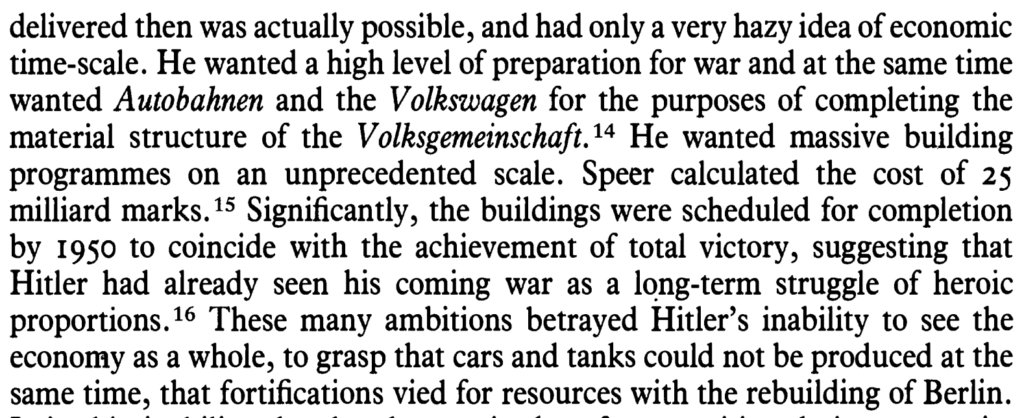
A Reinterpretation’

How was rearmament financed?
Hitler with Reichsbank President Hjalmar Schacht (May 5, 1934)
- In addition to the 12 million Mefo bills which were issued, the government also sold 19 million bonds.
- Undoubtedly, the confiscation of (mostly) Jewish assets before they emigrated during the 1930s was also a financial help to rearmament.
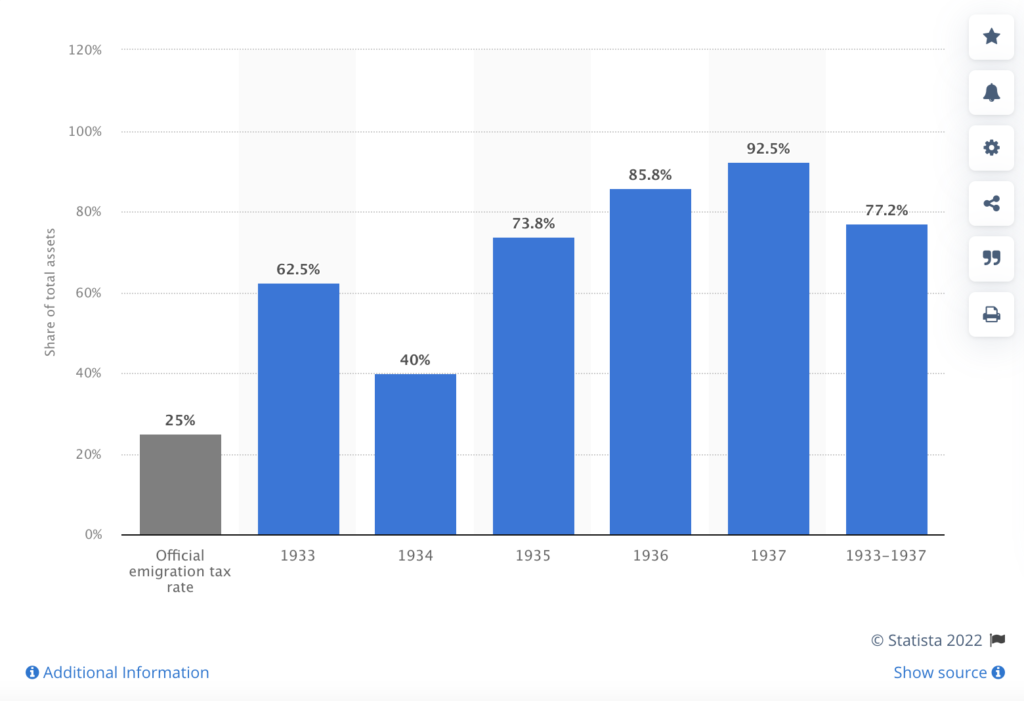
How did this help Hitler maintain power?
- Unemployment was reduced.
- Nazi propaganda explained that all positive economic news was due to the excellent economic stewardship of Hitler.
- The rearmament allowed Hitler to conduct a successful foreign policy. This reinforced the ‘superman’ ideology of Hitler, especially with Goebbels effective propaganda machine.
BUT
- Hitler was unable to produce both ‘guns and butter‘ so his popularity may have decreased because of the lack of civilian consumables.
Guns or Butter: The Nazi Economy
Political Strategy
Corruption
Corruption and Plunder in the Third Reich
Force, from the SD to the Gestapo
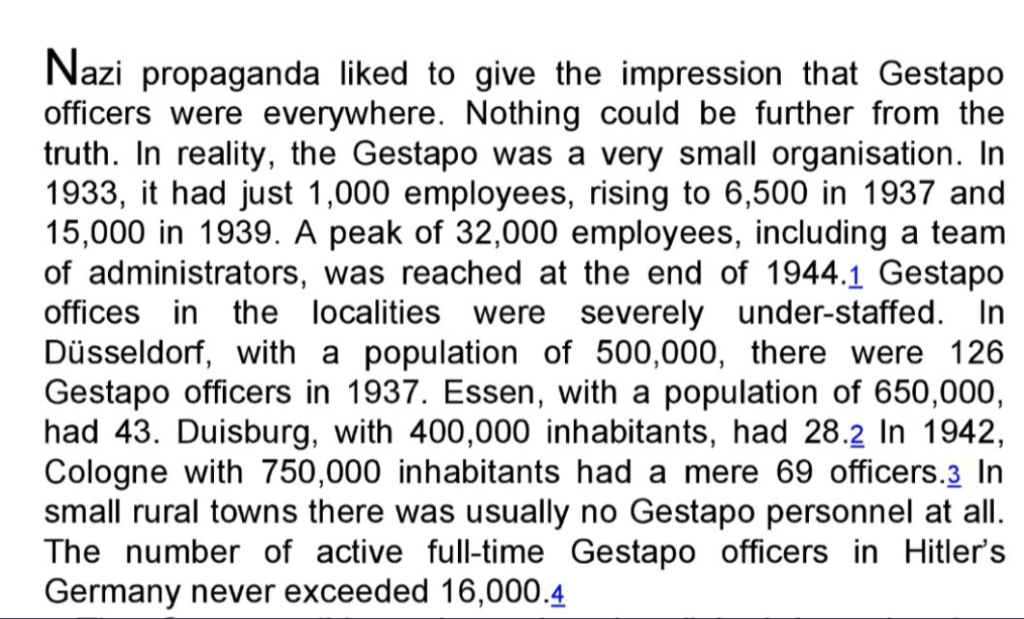
Propaganda and Indoctrination
An excerpt from the guidelines above,

Can you see how the Nazis are trying to create the Volksgemeinschaft or ‘people’s community’?
Anti-Semitism
How effective was anti-Semitism in maintaining Hitler as an authoritarian leader? If you are answering this question, you will undoubtedly use cinema as one of the examples in how the Nazis created division in society and hatred towards the Jews. This provided them with scapegoats at the time of need.
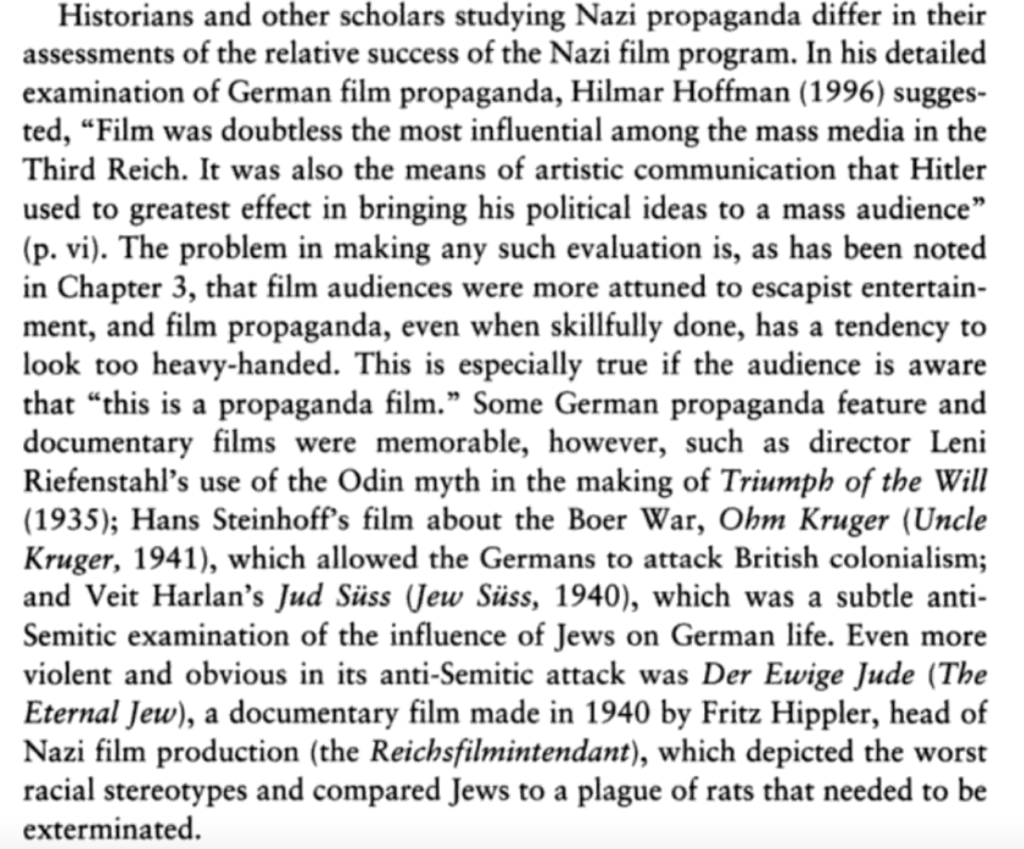
Arguably, the ‘Eternal Jew’ was one of the more famous examples of anti-Semitic propaganda, perhaps because it was shown in countries other than Germany during the Second World War. But it was not successful in terms of popularity, as the analysis shows below.
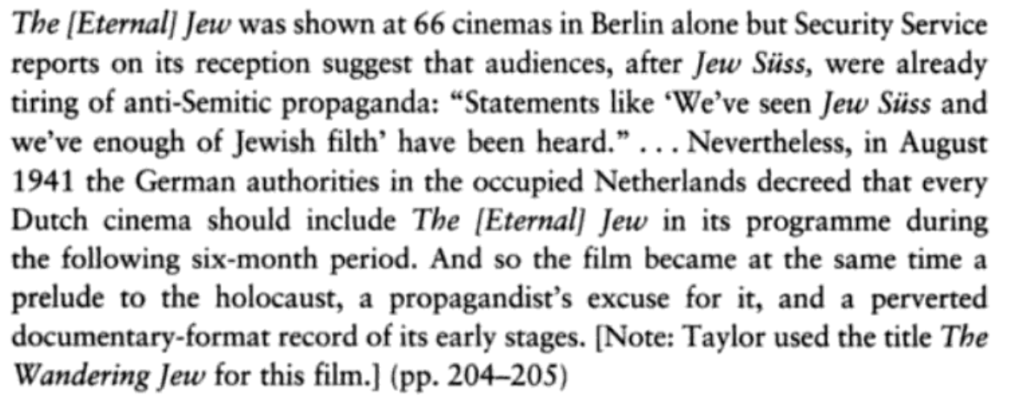
Prof. Jordan Peterson Analyzes Nazi Propaganda Film “The Eternal Jew” (Der Ewige Jude, 1940)
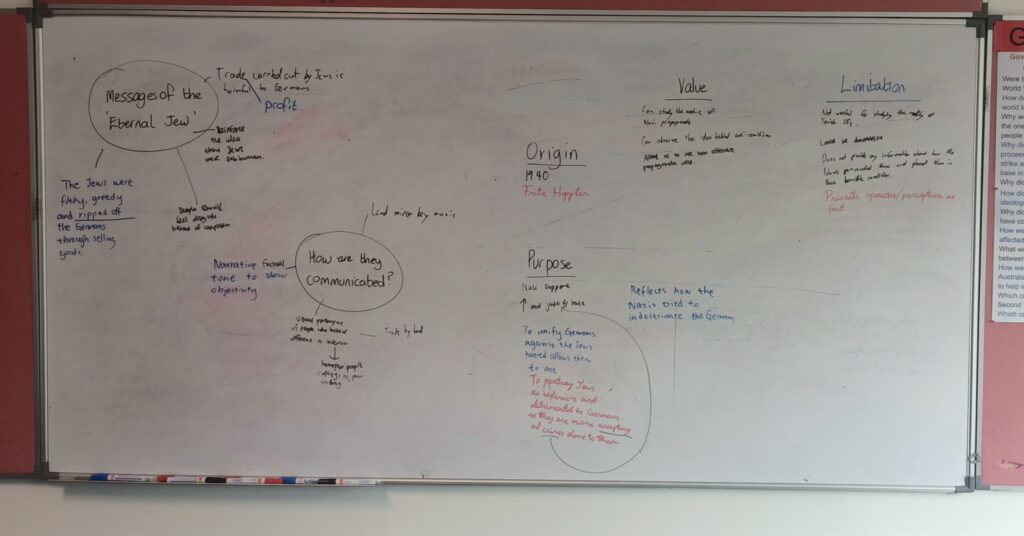
Education
Censorship
NAZI PROPAGANDA AND CENSORSHIP
Opposition to the Nazis
Why was there so little opposition to Hitler in Germany?


The Left were not able to, or did not sufficiently, oppose the Nazis…
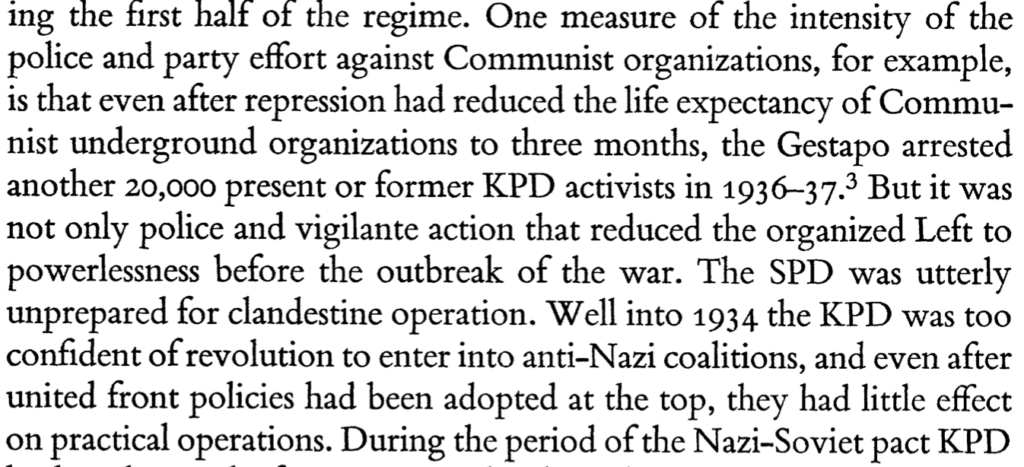
Conservative opposition failed to have an effect on Hitler’s government too.
- They were fearful of revolution if they acted forcefully (a repeat of 1918-19?), an overthrow of the system could be detrimental for them (interestingly, many conservatives were more active against the Weimar Republic than they were against Hitler).
- The conservatives could have opposed Hitler’s actions in 1938 (Anschluss), 1939 (Czechoslovakia) and 1941 (USSR) but chose not to. It was seen by some in the Wehrmacht at the time that the invasion against the latter was a strategic mistake but they still went ahead with it.
- The Army were undoubtedly powerful in Germany during the Nazi regime and could have acted more forcefully. But they had taken an oath, at their own behest, in 1934 and stuck to it.
- Arguably, they did not want to see the possible breakup of Germany if they acted. If army officers were involved in a putsch for example, it could divide the Wehrmacht and invite Soviet or Western defeat and possible occupation. Furthermore, the Nazi propaganda programme had been effective and, if any resistance was attempted, could turn the population against the conservatives or army hierarchy .
- Finally, there was little foreign assistance to possible opponents in Germany. If France and Britain had acted more forcefully in the 1930s (albeit with hindsight) , connections could be made with them and Hitler’s power curtailed or removed.
If the conservatives managed to replace Hitler,
- Would Germany have to give back the territories they had just won?
- Would there have to be any reparations? How would German people react to this?
The Churches
- According to Volker Ullrich, Hitler’s aim was to rid Germany of any religious institution other than the NSDAP. But he realised that this would have to be a gradual process as he could not afford to alienate so many religious people.
- As a result, he signed the Concordat with the Catholic Church in 1943.
- Pastor Martin Niemöller
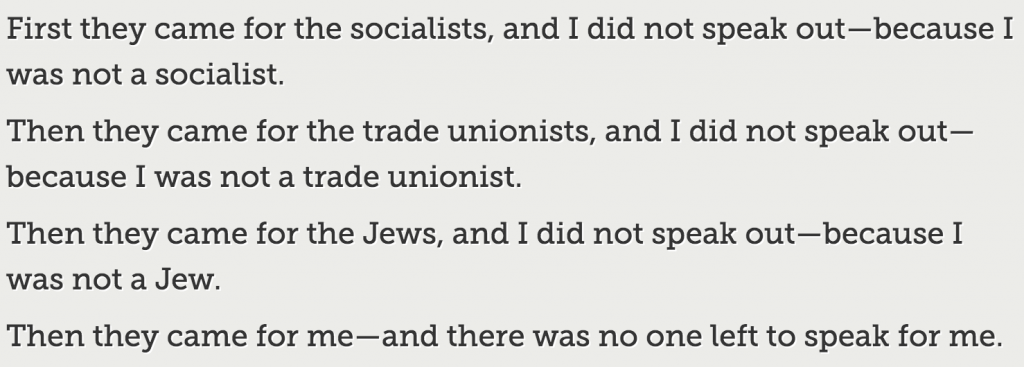
A famous quotation but one that was made after the Second World War had ended. As the website explains, Niemöller was a former Nazi member who became disillusioned with Hitler’s actions and policies by 1934. He set up the Pastor’s Emergency League in opposition to him and his government and was eventually imprisoned in Sachsenhausen and Dachau concentration camps from 1938 to 1945 as a result.
The White Rose
Foreign Policy
